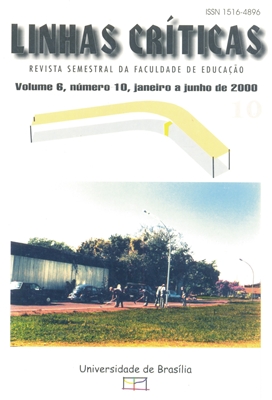Prevenir diagnósticos equivocados: uma proposta de avaliação compreensiva e contextual
DOI:
https://doi.org/10.26512/lc6200045340Keywords:
Diagnóstico, Fracasso escolar, Educação especialAbstract
Este artigo enfoca a problemática da máxi-representação de crianças pobres em programas de educação especial e o previsível fracasso escolar dessas mesmas crianças. Diante das variáveis de “diagnóstico”, “prevenção” e “tratamento” torna-se impossível não visualizar a crescente problemática de assegurar uma educação de qualidade para todos, independentemente dos fatores sócio-econômicos e das características físicas, motoras, emocionais e sensoriais de cada indivíduo. A vulnerabilidade educacional ao fracasso escolar das crianças vindas dos extratos menos favorecidos da população, como também das crianças com necessidades de respostas educacionais adequadas para a sua aprendizagem, evidencia a extrema urgência de um escrutínio das práticas pedagógicas que ocorrem nas salas de aula, como também das práticas relacionadas ao diagnóstico e encaminhamento ao ensino especial. Para atingir esse objetivo, o presente artigo também discute o conceito de “deficiência” enquanto um constructo social.
Downloads
Downloads
Published
How to Cite
Issue
Section
License

This work is licensed under a Creative Commons Attribution 4.0 International License.
Authors who publish in this journal agree to the following terms:
-Authors maintains the copyright and grants the journal the right of first publication, the work being simultaneously licensed under the Creative Commons Attribution License which allows the sharing of the work with recognition of the authorship of the work and initial publication in this journal.
- Authors are authorized to enter into additional contracts separately, for non-exclusive distribution of the version of the work published in this journal (eg publish in institutional repository or as a book chapter), with acknowledgment of authorship and initial publication in this journal.
-Authorers are allowed and encouraged to publish and distribute their work online (eg in institutional repositories or on their personal page) at any point before or during the editorial process, as this can generate productive changes as well as increase the impact and the citation of published work (See The Effect of Free Access).



